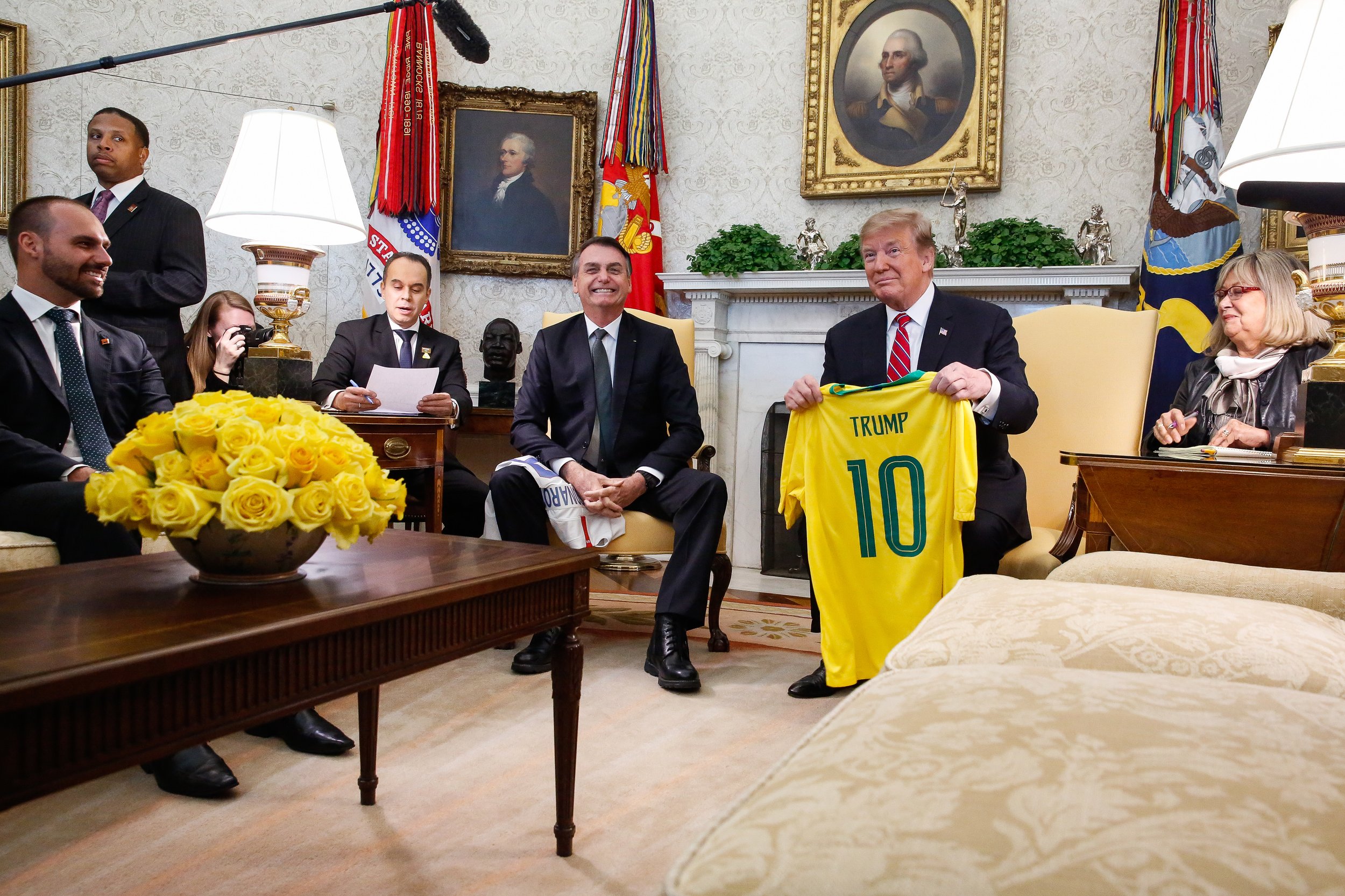Violence as an element of presidential disputes in Brazil and the United States
James N. Green, historian, professor emeritus of Brazilian history and culture at Brown University, author or co-editor of eleven books on Brazil and president of the Board of Directors of the Washington Brazil Office (WBO)
Paulo Abrão, doctorate in law, was executive secretary of the Inter-American Commission on Human Rights (IACHR), national secretary in the Brazilian Ministry of Justice and president of the Amnesty Commission, as well as executive secretary of the Mercosur Human Rights Institute. He is the executive director of the WBO.
This article was written for issue 128 of the WBO weekly newsletter on August 2 2024. To subscribe to the newsletter, simply enter your email in the form at the end of the article.
The attack on Donald Trump, which took place on July 13 in the city of Butler, in the state of Pennsylvania, shocked the entire world, but it had an even more alarming meaning for Brazilians. In disbelief, viewers watching the news live in Brazil could not help but think of the many parallels between what was happening at that moment with the Republican Party candidate for the US presidency and what had taken place on September 6, 2018, when Jair Bolsonaro was stabbed in the stomach during a presidential campaign event in the city of Juiz de Fora, Minas Gerais.
The first and most important fact to highlight in these two events is the harmful and undesirable effect of political violence in both countries. In a democracy, no presidential candidate should fear for his or her life when campaigning, just as no elected politician should fear for his or her life when exercising his or her mandate. In fact, no activist, protester, union leader, or leaders of civil society movements and organizations should be threatened in any way for simply exercising their legitimate right to free speech, movement, association, and protest. When the cost of political activism becomes one's own life, it is a sign of the deterioration of democracy.
The fact that violence has plagued two of the world's largest democracies in such a short space of time is a worrying indication of the corrosion of public debate. These signs should serve as a warning; they cannot be trivialized, ironized, or considered insignificant. Both cases must be properly understood and analyzed responsibly, and this analysis must lead to structural responses that are up to the task – since political violence shows signs of increasing with the passing of time. Obviously, Trump and Bolsonaro did not deserve the attacks they suffered. Both were victims of actions that are reprehensible under any circumstances. Just as, before them, Rio de Janeiro city councilwoman Marielle Franco and her driver, Anderson Gomes, were also victims of political violence with an infinitely more tragic fatal outcome in March 2018. However, neither of these episodes should be seen as isolated cases disconnected from a broader context. Ignoring the complex elements that create the conditions for political violence to take hold in these societies is to miss the opportunity to collectively reflect on the quality of public debate and the risk that it will devolve into physical threats, as has been happening to a worrying extent in Brazil and the United States.
The language used by political actors has been an invitation to violence, and all those involved in this situation need to seriously reflect on their speech and attitudes. The dehumanization of adversaries points to the devaluation of life. When adversaries are seen as enemies, politics begins to go down a dangerous path. When at campaign rallies candidates use their hands and fingers to simulate firing weapons in the air or when they pick up TV camera tripods to simulate rifles with which to machine-gun their opponents, aren't they themselves investing in language that trivializes, incites, and encourages violence?
If we look back, can we not conclude that the invasion of the Capitol in Washington on January 6, 2021 and the destruction of the headquarters of the executive, legislative and judicial branches of government in Brasilia on January 8, 2023 are also part of this broader context in which violence is normalized? These acts, which would have been unimaginable in the past, are now not only part of the political landscape of the current generation but also loom as permanent threats of confrontations and violent uprisings against the centers of power.
The perpetrators of political violence must always be held accountable for their actions without a doubt. But this will not be enough unless the leaders who promote this violent climate reflect on the type of behavior that has been encouraged in their electoral campaigns and in their real and virtual relationships with their followers. Without self-criticism and an in-depth debate about the direction of our democracies, there will be no real progress in creating, developing, and defending a plural and healthy public space in which electoral participation does not become so dear that it ends up costing someone their life.


